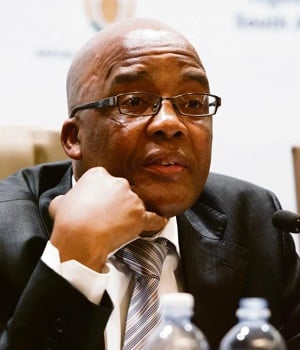
Health Minister Dr Aaron Motsoaledi yesterday slammed the private healthcare groups for unsubstantiated claims that their inflated costs were in part related to a limited amount of specialists coming out of South Africa’s limited training capacity.
Speaking to City Press by phone yesterday, Motsoaledi argued that the two were not necessarily related.
Throughout the Competition Commission’s inquiry into reasons for rising costs in the private health sector which started on February 16, he said he was yet to hear any real justification for the high cost of private healthcare from the private sector in public hearings this week.
“There is overwhelming evidence from the World Health Organisation and the Organisation for Economic Co-operation that South African private healthcare is more expensive than rich countries in Europe.”
In his submission to the inquiry on Friday he said that the health care system favoured the rich.
“We are running a health care system whereby the poorest do not get what they need in terms of health, the richest get much more than they need which means there is over servicing for the rich and gross under servicing of the poor. That is not the health care system that we could allow ourselves to go on with,” Motsoaledi said.
He said government has not done much to ensure all South Africans receive emergency medical care.
“Subsection 3 of section 27 of the Constitution says no one may be refused emergency medical treatment. That is very greatly abused and we are trying to put up steps to bring an end to it. We must confess as government that we have not taken action.”
He also argued that he himself had been a victim of private healthcare. He said that he paid R14000 a month for medical aid but his funds are exhausted by October.
The commission also heard from Netcare’s Director of Strategy and Health Policy Melanie Da Costa attributed high costs in private healthcare to a high demand for doctors and specialists which were in short supply.
He said that part of the problem was due to regulation preventing the training of doctors in private healthcare institutions. If they were allowed to train doctors that would help increase numbers of specialists and subsequently reduce costs for patients.
Motsoaledi told City Press yesterday that 80% of the specialists of this country were in private healthcare taking care of 16% of the population.
Only 20% of the specialists in this country were in public health care taking care of 84% of the population.
“So I don’t understand the justification. On top of that, they still poach specialists working in public healthcare through a system called RWOP, which means that many of our specialists working in our universities are still going to do work in the private sector. I don’t understand that story,” he said.
Motsoaledi did admit though that there is a lot of work to be done in public healthcare as well, “while it is affordable, it has got a problem of quality and efficiency.”
He re-iterated the need for a policy shift in healthcare which he believes should be championed by the NHI. “We regard the National Health Act (61 of 2003) as binding guiding principle to both the private and public providers of health,” Motsoaledi added.
“If you look at the white paper on NHI, we are saying that NHI is a substantial policy shift that will necessitate a massive re-organisation of the healthcare system. We underline the word massive.”
“We need to massively re-organise the healthcare system. We have identified the areas that cause problems in public health care. We have made the diagnosis on what is wrong with the public healthcare system. Now that you have the diagnosis, what is the remedy?” he asked.
Motsoaledi said that the commission still had a long road ahead as it will now begin the second round of its investigation at the end of this month. Round two will be looking at specific sectors in private healthcare including: medical aid schemes, specialists, general practitioners and private hospitals. He said the commission would continue its work over the next few months and the conclusion would only be made known is December.




 Publications
Publications
 Partners
Partners








